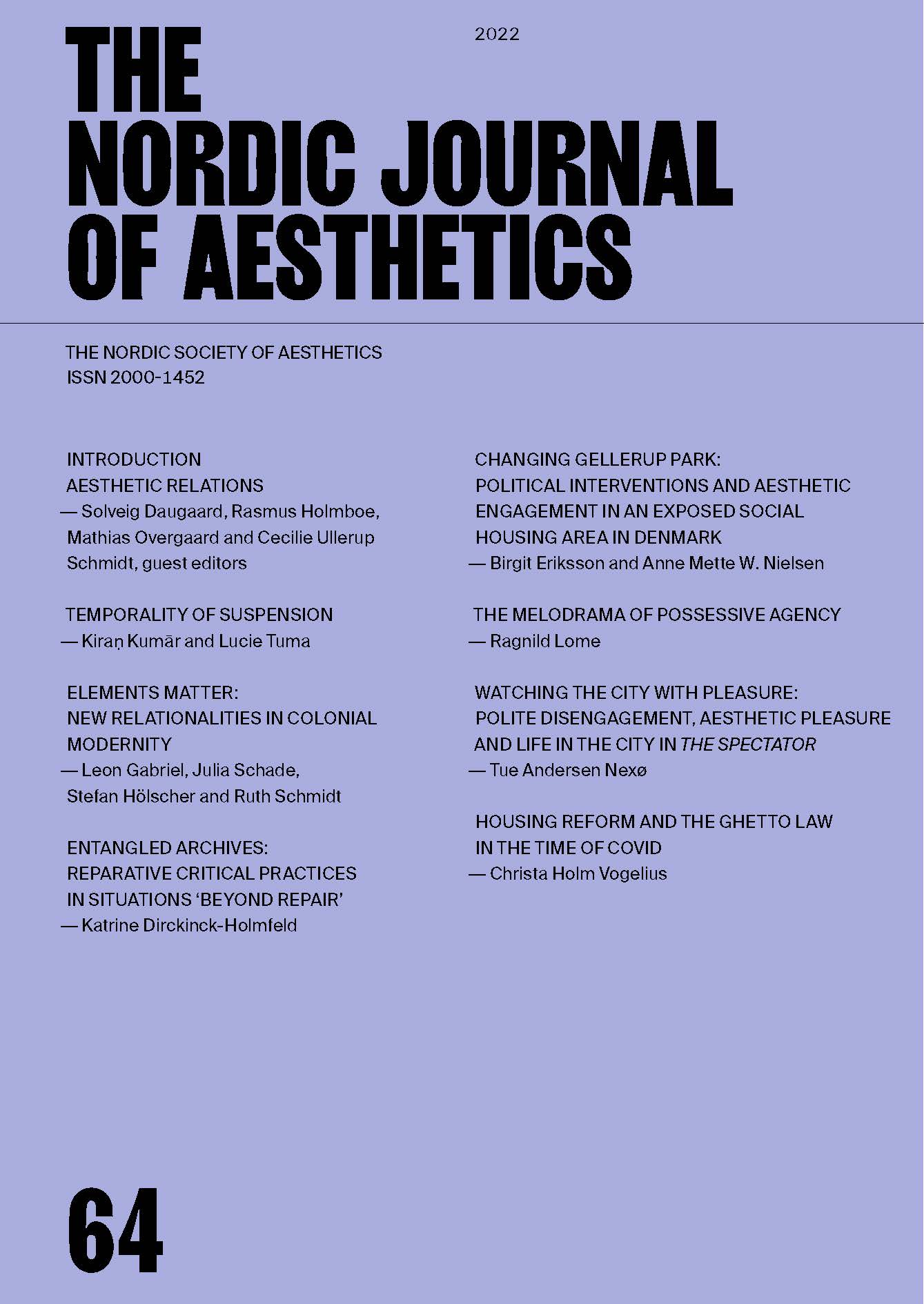Housing Reform and the Ghetto Law in the Time of Covid
DOI:
https://doi.org/10.7146/nja.v31i64.134224Keywords:
Urban reform, New York City, 19th century studies, Jacob Riis, Copenhagen, Danish politicsAbstract
This short personal essay considers the principles behind housing reform in New York at the turn of the last century in light of the controversies around the ghetto law in contemporary Denmark. I take the example of documentary journalist and reformer Jacob Riis, who photographed housing conditions in immigrant neighbor-hoods on the Lower East Side in New York at the turn of the twentieth century, as a case study for considering the ways that race informed—and continues to inform—ideals around urban planning. Conversely, I also consider contemporary controversies around the ghetto law, and activism by community members as a way of re-thinking a research approach to historical urban reforms.
Downloads
Published
How to Cite
Issue
Section
License
Copyright (c) 2022 Christa Holm Vogelius

This work is licensed under a Creative Commons Attribution 4.0 International License.
Authors who publish with this journal agree to the following terms:
- Authors retain copyright and grant the journal right of first publication with the work simultaneously licensed under a Creative Commons Attribution License that allows others to share the work with an acknowledgement of the work's authorship and initial publication in this journal.
- Authors are able to enter into separate, additional contractual arrangements for the non-exclusive distribution of the journal's published version of the work (e.g., post it to an institutional repository or publish it in a book), with an acknowledgement of its initial publication in this journal.
- Authors are permitted and encouraged to post their work online (e.g., in institutional repositories or on their website) prior to and during the submission process, as it can lead to productive exchanges, as well as earlier and greater citation of published work (See The Effect of Open Access).




